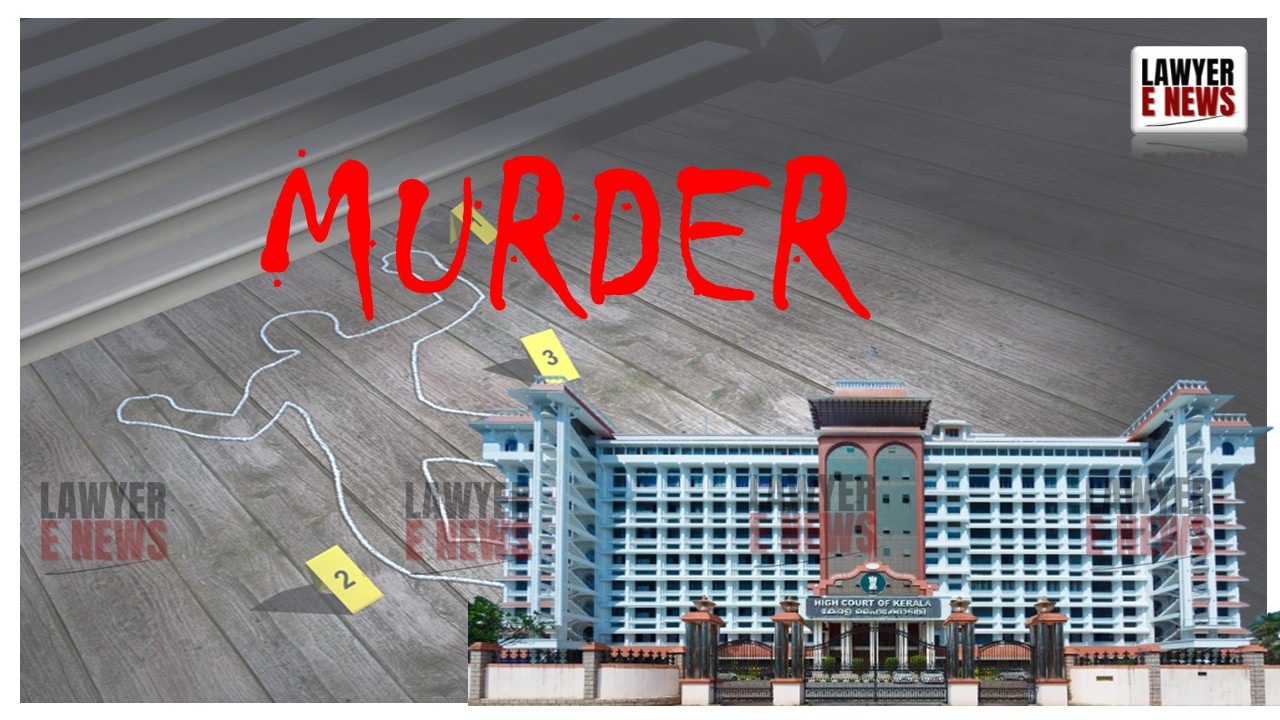-
by Admin
18 February 2026 4:34 AM



Miscarriage of Justice Arises as Much From Convicting the Innocent as From Acquitting the Guilty — The Standard of Proof Beyond Reasonable Doubt Must Never Be Compromised - Kerala High Court, in a landmark decision upheld the acquittal of all ten accused in the politically charged 2015 Pazhuvil murder case. The Division Bench comprising Justices P.B. Suresh Kumar and Jobin Sebastian ruled that once a trial court delivers an acquittal, the presumption of innocence is reinforced, and unless there exists "gross perversity in appreciation of evidence" or "patent illegality", appellate courts should not interfere.
The Court remarked emphatically, “It is settled that if two reasonable or at least plausible views can be reached on the facts and evidence—one leading to acquittal and the other to conviction—the appellate court shall rule in favour of the accused.”
“Suspicion, However Grave, Cannot Replace Proof Beyond Reasonable Doubt”: Court Finds No Compelling Reason to Interfere with Acquittal
Deepak, a local leader of the Janata Dal (United), was brutally murdered on the night of 24th March 2015. The prosecution alleged that it was a politically motivated act of revenge plotted by members of the rival Socialist Janata Dal (SJD), in response to an earlier attack on the sixth accused, Sivadas.
According to the prosecution, accused 1 to 5 came in a Maruti Omni van, attacked Deepak with knives and swords, and fled the scene. Multiple eyewitnesses, including Sajeev (PW1) and Stalin (PW2), identified the attackers during trial and in test identification parades. Forensic evidence allegedly linked some of the accused to the crime scene, including hair and fingerprint matches.
Despite this, the Additional Sessions Court, Thrissur, acquitted all ten accused, finding inconsistencies, contradictions, and weaknesses in the evidence. The State and the victim’s wife challenged the acquittal.
The High Court, however, found no perversity in the trial court’s judgment. The Bench held, “Once the trial court acquits the accused, the presumption of innocence gets further strengthened and can be displaced only by very substantial and compelling reasons.”
It added, “Misreading of evidence or failure to consider relevant material might justify interference. But if the trial court has taken a plausible view based on the material, even if another view is possible, it cannot be reversed merely on that basis.”
“Justice Demands More Than Suspicion — It Demands Certainty Grounded in Proof”
The Court scrutinized the testimony of eyewitnesses, the timing of test identification parades, inconsistencies in medical reports, and scientific evidence. It observed that while suspicion was strong, the prosecution failed to meet the strict standard of criminal proof.
“The trial court's view may not be the only possible one, but it is certainly a plausible one,” the Court held. “The law does not permit conviction on conjecture or cumulative suspicion, however grave.”
Addressing the criticism against the trial court for alleged non-consideration of evidence, the Bench responded: “The judgment of acquittal cannot be said to be vitiated either by perversity or by misappreciation of evidence. There is no compelling reason to disturb the findings.”
In dismissing both the State's and the victim’s appeals, the Kerala High Court delivered a firm message on the principles of criminal justice: acquittals are not to be lightly overturned. The ruling stands as a reaffirmation of the principle that in criminal law, it is better that ten guilty persons escape than one innocent suffer.
The Court concluded, “Presumption of innocence does not evaporate after trial—it deepens after acquittal. Unless compelling material overturns that finding, courts must protect it.”
Date of Decision: 08 April 2025
